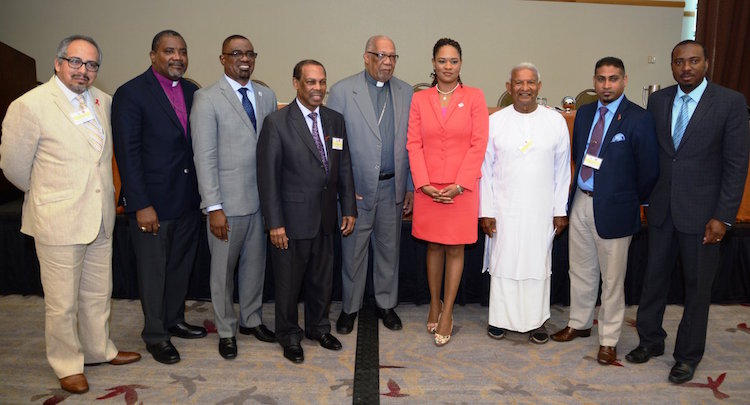Viewpoint by Jonathan Power*
LUND, Sweden (IDN) — There are questions that even today the historians don’t seem moved to investigate. Two important ones come to mind. Why was it that Pharaonic Egypt never went to war for hundreds of years until Ramesses 11 became pharaoh in 1303 BC? Isn’t it a fact that Jews in Europe were unmolested for most of the first millennium after the death of Jesus?
The Egyptian question is a bit of an idle curiosity since an answer probably won’t affect our behaviour today, although it should. Still, it is nice to know that we human beings aren’t constituted to always make war and that we don’t have to live like we did over hundreds of years in Europe—going to war at the seeming drop of a hat and making the continent the most war-like place on earth.
To learn more about the persecution of the Jews is highly relevant to today’s Palestinian-Israeli struggle for the ancient land of Palestine. The siege mentality that modern Israel exhibits could do with being leavened with a bit of honest history. Jewish history over two thousand years hasn’t always been pogroms. The Holocaust only happened once, although once is one too many. As I’ve found, one has to really dig to uncover the first thousand-year history of Jewish persecution. Not many rabbis or scholars bother to.
For most of the time, over two millennia, the Jews in Europe got on with life and were not often persecuted. Indeed, in the first millennium they seemed to have been barely noticed. They may not have been always liked but they were accepted
Even when, at the beginning of the second millennium, tolerance of the Jews did gradually give way to demonizing them in some quarters, by and large Jews lived on good terms with their Christian neighbours, as in Muslim-run Spain. Then as now they were considered to be materially successful and culturally brilliant.
The influential Christian scholar, St. Anselm, in the 1090s broke from St Augustine’s long held opinion that those who had crucified Christ had not known he was the son of God. Whether this had a profound influence on ordinary opinion can only be guessed at, but we do know that in the late eleventh and early twelfth century outrages were perpetuated against Jews, albeit infrequently. During the preparations for the crusade of 1096 Jews were massacred in significant numbers. Yet at the same time there were strong counter currents. Pope Alexander 11 in the decrees of the Third Lateran Council in 1179 wrote that Jews were not to be deprived of land, money or goods and their religious ceremonies should not be interrupted with sticks and stones.
Over the next 750 years the Jews for the most part prospered. Occasionally there were mass killings, but the word “mass” should be kept in proportion—barely was it more than 100 killings at a time, occasionally double that. We should also recall what murderous centuries these were in Europe—wars between kings, dukedoms and knights’ fiefdoms, not to mention the later almost continuous protestant-catholic wars. Compared with these the anti-Jewish pogroms were relatively minor affairs.
In 1791 Catherine the Great of Russia created the Pale of Settlement, territory where permanent Jewish settlement was allowed. Its population was about 5 million, comprising around 40% of the world’s Jewish population. However, Jews in the Pale—which covered about 20% of Russia’s European territory—were still a minority, perhaps 14% of the population. The host community resented this influx of Jews and there were from time to time, but not continuously, pogroms and anti-Jewish riots. In the big pogroms of 1891 and 1903 thousands were murdered.
Over two million fled, mainly to the US, but only rarely did they show themselves much interested in the Zionist cause. They were happy where they were and found themselves side by side with other peoples who had also been badly persecuted in Europe. They discovered they weren’t the only ones, and this helped give them a sense of perspective that lasted until the Holocaust.
We should not be surprised then that although Zionism was a western construct its greatest appeal was to the remaining East European Jews. West European Jews had found a modus vivendi and their chief concern was not physical oppression. It was the loss of identity through assimilation. What the western Jews cared for was the spiritual redemption of their people. Hence, when Theodor Herzl, the founder of Zionism, preached his cause at the end of the twentieth century he met with much opposition from the western Jews.
However, by the later standards of Zionist leaders, Herzl was a moderate man. His urge for a Jewish state was a question of finding a suitable piece of land—it could be in Africa or South America. It did not have to be in Palestine.
Israelis today need to reflect on all this. Apart from Hitler’s Holocaust—a one off event if ever there was one—their forefathers were not singularly persecuted when compared with what else was going on at the time- wars, persecution of minorities and those of a different religion and the torture of enemies. And until the end of the Second World War popular Jewish opinion, either inside or outside the Middle East, did not countenance a take-over of Palestine. All they wanted was some modest settlement in a land they could call their own.
* About the author: The writer was for 17 years a foreign affairs columnist and commentator for the International Herald Tribune, now the New York Times. He has also written many dozens of columns for the New York Times, the Washington Post, the Boston Globe and the Los Angeles Times. He is the European who has appeared most on the opinion pages of these papers. Visit his website: www.jonathanpowerjournalist.com [IDN-InDepthNews — 25 May 2021]
Photo: Praying at the Western Wall. CC BY 2.0
IDN is the flagship agency of the Non-profit International Press Syndicate.

